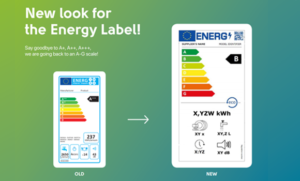Energy efficiency defines the UK’s approach to sustainable development, involving cutting-edge technology, robust policies, and a commitment to reducing carbon footprints. Renewable technologies and smart energy systems are UK’s solutions to enhancing energy utilization.
Innovation at the Forefront of Efficiency
The United Kingdom embraces innovation, with smart grids and energy-efficient appliances spearheading a national drive to curtail energy consumption. Smart grids, sophisticated energy conduits of the modern age, facilitate a more responsive and sustainable electricity supply network. They dynamically balance energy supply with the consumption patterns of households and businesses, leading to a significant decrease in waste and an increase in energy conservation. Energy-efficient appliances, marked with the distinguished Energy Star rating, accompany these smart grids in the UK’s arsenal against inefficiency, offering consumers the ability to reduce their carbon footprint while maintaining high performance in their daily lives.

New energy labels
The deployment of smart meters across the country stands as a testament to the UK’s commitment to energy stewardship. These devices offer real-time data on energy usage, giving consumers the power to manage their electricity consumption with unprecedented precision. The convenience of tracking energy usage instantly and making informed decisions helps in fostering a culture of energy mindfulness, which, in turn, translates to a reduction in unnecessary energy expenditure and tangible cost savings.
Collaborative efforts among industry giants such as UK Energy Support, EON, OFGEM, and DWP underscore the collective mission of enhancing energy efficiency. These entities synergize to pioneer initiatives that promote the adoption of renewable energy sources, energy-saving technologies, and practices that align with the nation’s green aspirations. From subsidizing the cost of energy-efficient upgrades to advocating for regulatory changes that support sustainable development, these organizations are integral to the transformation of the UK’s energy landscape.
Through these concerted efforts, the United Kingdom is not only advancing towards a more energy-efficient future but also setting a benchmark for other nations to follow. With innovation as the driving force, the UK is charting a course towards an environmentally responsible and economically viable future, where energy conservation becomes a way of life, and sustainability is ingrained in the very fabric of society.
Renewable energy sources, such as wind, solar, and hydroelectric power, are increasingly contributing to the national grid, reducing dependence on fossil fuels and lowering greenhouse gas emissions. The development of battery storage technologies is also enhancing the reliability and efficiency of renewable energy, making it a viable option even when the sun doesn’t shine or the wind doesn’t blow.
Policies Fuelling Sustainable Growth
The UK government has implemented various policies and initiatives to promote energy efficiency. The Climate Change Act, set into law in 2008, was a landmark move, committing the UK to reduce its greenhouse gas emissions by at least 80% by 2050 compared to 1990 levels. Recent updates aim for net-zero emissions by 2050, further emphasizing the importance of energy efficiency.
Financial incentives, such as grants and loans for installing energy-efficient systems and renewable energy technologies, have also been instrumental. The Green Homes Grant scheme, although short-lived, highlighted the government’s intention to support homeowners in making energy-saving improvements.
Behavioural Change: A Pillar of Efficiency
Consumer behaviour in the UK reflects a shift towards energy consciousness, with an increasing number of individuals adopting energy-saving practices. The UK has seen a growing movement towards more sustainable living practices, from reducing energy consumption to investing in energy-efficient appliances and systems. Educational campaigns and initiatives aimed at encouraging energy-saving habits, such as turning off lights when not in use and reducing water heating temperatures, have gained traction.
Economic and Environmental Benefits
Energy efficiency in the UK spells economic savings and job creation, as reduced energy bills and growth in the green sector benefit the economy. A healthier ecosystem and reduced carbon emissions are the environmental rewards of these initiatives.

energy efficiency
Economic Savings through Reduced Energy Bills:
- Households and businesses experience lower utility costs.
- Efficiency measures lead to less energy required for heating, cooling, and running appliances.
- Smart technologies allow for real-time energy management, preventing wastage and lowering monthly expenses.
Job Creation in the Green Sector:
- Investment in renewable energies and energy-efficient technologies spurs job growth.
- New careers emerge in the installation, maintenance, and innovation of green technology.
- Government incentives for energy-efficient buildings create opportunities in construction and retrofitting industries.
Boost to the Economy:
- The green sector’s expansion contributes to a robust and diversified economy.
- Energy efficiency programs often require local sourcing, supporting local businesses and economies.
- The money saved on energy bills can be redirected to other sectors, further stimulating economic activity.
Healthier Ecosystem:
- Energy efficiency reduces the demand on power plants, leading to less pollution.
- Conservation efforts help preserve natural habitats by reducing the need for energy-related land and resource extraction.
- Lowered emissions contribute to cleaner air and water, directly benefiting wildlife and natural vegetation.
Reduced Carbon Emissions:
- A shift to more efficient energy use significantly cuts greenhouse gas emissions.
- Adoption of renewable energy sources further reduces the carbon footprint.
- The UK’s commitment to energy efficiency aligns with international goals to mitigate the effects of climate change.
Wider Environmental Rewards:
- Energy-efficient practices reduce waste and promote recycling and sustainable resource use.
- Initiatives like urban green spaces and increased tree planting are often part of broader energy and environmental policies.
- A focus on sustainability encourages conservation beyond energy, encompassing water savings and reduction in plastic use.
The Road Ahead
Continued advancements and public engagement remain crucial for the UK, as it forges ahead with its energy efficiency targets.
As the UK continues to advance its energy efficiency goals, the journey is far from over. Ongoing investments in technology, policy refinements, and a sustained commitment from the public are essential. The transition to a more energy-efficient and sustainable future is a collective effort, requiring the participation of all sectors of society.
In conclusion, energy efficiency in the UK is a dynamic and evolving field, reflecting the nation’s commitment to a sustainable and prosperous future. By embracing technological innovations, supportive government policies, and sustainable consumer behaviours, the UK is setting a benchmark for energy efficiency worldwide.





